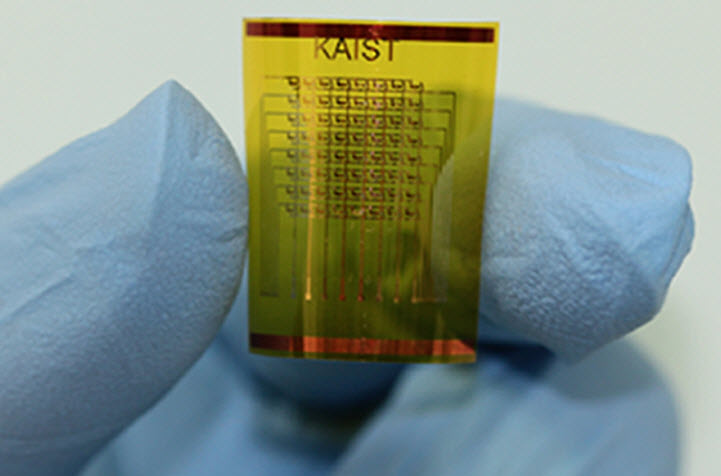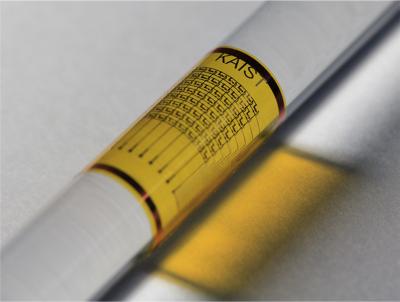Fully functional flexible memory on plastic
November 4, 2011
Korea Advanced Institute of Science and Technology (KAIST) researchers have developed fully functional flexible non-volatile resistive random access memory (RRAM), a new technology that allows a memory cell to be randomly accessed, written, and erased on a plastic substrate.
The demand for flexible electronic systems such as wearable computers, E-paper, and flexible displays has recently increased due to their advantages over present rigid electronic systems.
Although several flexible memory materials have been reported, these devices could not overcome cell-to-cell interference due to their structural and material limitations.

RRAM (credit: KAIST)
To solve this problem, switching elements such as transistors must be integrated with the memory elements. Unfortunately, most transistors built on plastic substrates (e.g., organic/oxide transistors) are not capable of driving conventional memory.
The KAIST researchers solved the cell-to-cell interference issue by integrating a memristor with a high-performance single-crystal silicon transistor on flexible substrates.
Ref.: Seungjun Kim et al., Flexible Memristive Memory Array on Plastic Substrates, Nano Letters, Oct. 2011

